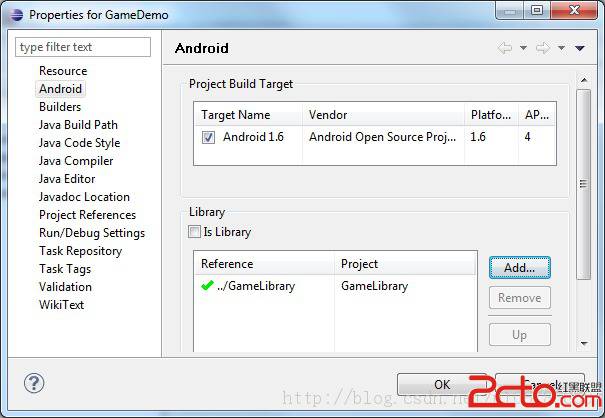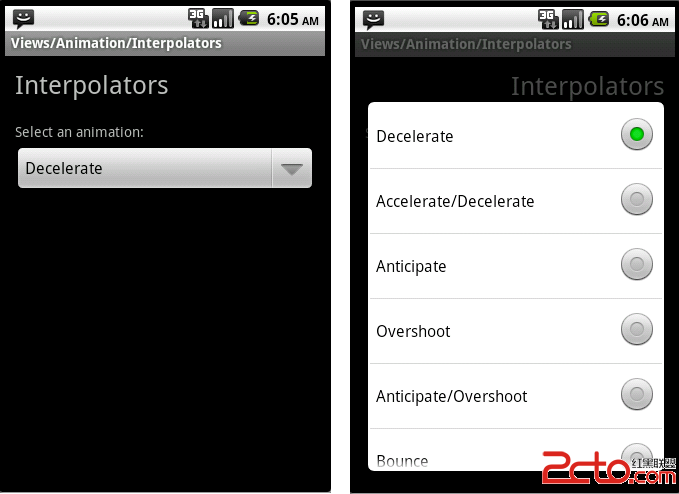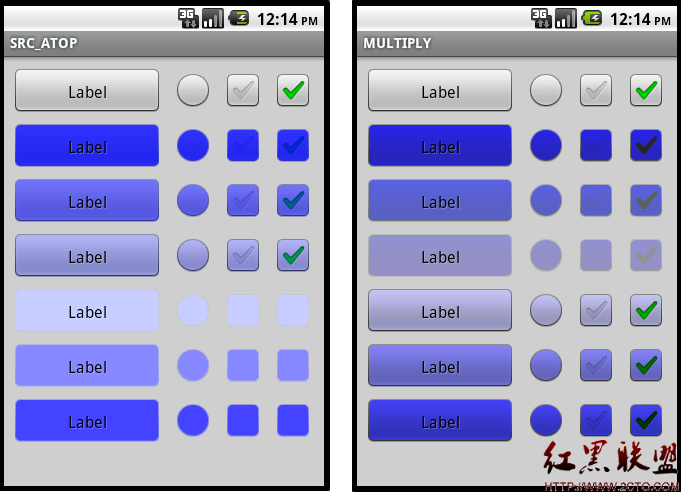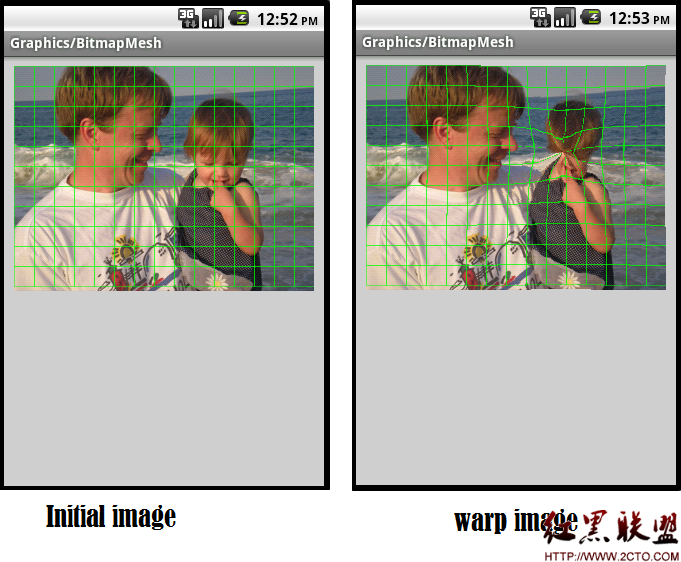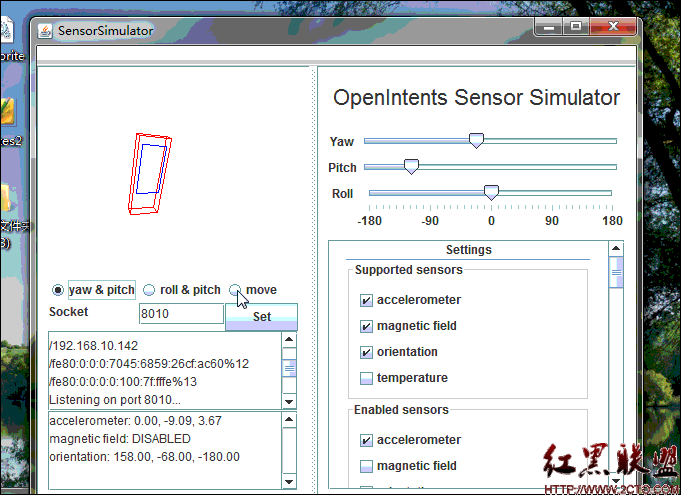Android---接收来自其他应用程序的内容
就像你的应用程序能够把数据发送给其他应用程序一样,它也可以很容易的接收来自其他应用程序的数据。在接收来自其他应用程序的数据时,需要考虑用户如何跟你的应用程序进行交互,以及你的应用程序想要接收的数据类型。例如,一个社交网络应用程序应该对接收文本内容感兴趣,如感兴趣的来自另外一个应用程序的Web网址(URL)。Android的Google+应用程序会接收文本和图片(一张或多张)。使用这个应用程序,用户可以轻松的启动Google+来发送来自Android图库应用中的图片。
更新你的清单
Intent过滤器会通知系统,一个应用程序组件会接收什么样的Intent对象。在清单文件中,使用<intent-filter>元素定义一个Intent过滤器。例如,如果你的应用程序要处理接收的文本、任意类型的图片(一张或多张),你应该像下面这样定义清单文件:
<activityandroid:name=".ui.MyActivity">
<intent-filter>
<action android:name="android.intent.action.SEND" />
<category android:name="android.intent.category.DEFAULT" />
<data android:mimeType="image/*" />
</intent-filter>
<intent-filter>
<action android:name="android.intent.action.SEND" />
<category android:name="android.intent.category.DEFAULT" />
<data android:mimeType="text/plain" />
</intent-filter>
<intent-filter>
<action android:name="android.intent.action.SEND_MULTIPLE" />
<category android:name="android.intent.category.DEFAULT" />
<data android:mimeType="image/*" />
</intent-filter>
</activity>
注意:有关Intent过滤器和Intent解析的更多信息请看Intent和Intent过滤器
当另外一个应用程序通过构造一个Intent对象,并把它传递给startActivity()来共享这些东西时,你的应用程序就会作为一个列表项被列在Intent选择器中。如果用户选择了你的应用程序,对应的Activity(上例中的.ui.MyActivity)就被启动。然后你就可以在你的代码和UI中处理相应的内容了。
处理输入的内容
要处理由Intent对象所发送的内容,就要从调用getIntent()方法来获得Intent对象开始。一旦你获得了这个对象,就可以检查它的内容来判断下一步的工作。要记住,如果被启动的Activity是来自系统的其他部分,如Launcher,那么在检查Intent对象时,需要对此加以考虑。
void onCreate (Bundle savedInstanceState){
...
// Get intent, action and MIME type
Intent intent = getIntent();
String action = intent.getAction();
String type = intent.getType();
if (Intent.ACTION_SEND.equals(action) && type != null) {
if ("text/plain".equals(type)) {
handleSendText(intent); // Handle text being sent
} else if (type.startsWith("image/")) {
handleSendImage(intent); // Handle single image being sent
}
} else if (Intent.ACTION_SEND_MULTIPLE.equals(action) && type != null) {
if (type.startsWith("image/")) {
handleSendMultipleImages(intent); // Handle multiple images being sent
}
} else {
// Handle other intents, such as being started from the home screen
}
...
}
void handleSendText(Intent intent) {
String sharedText = intent.getStringExtra(Intent.EXTRA_TEXT);
if (sharedText != null) {
// Update UI to reflect text being shared
}
}
void handleSendImage(Intent intent) {
Uri imageUri = (Uri) intent.getParcelableExtra(Intent.EXTRA_STREAM);
if (imageUri != null) {
// Update UI to reflect image being shared
}
}
void handleSendMultipleImages(Intent intent) {
ArrayList<Uri> imageUris = intent.getParcelableArrayListExtra(Intent.EXTRA_STREAM);
if (imageUris != null) {
// Update UI to reflect multiple images being shared
}
}
警告:要额外仔细的检查输入的数据,因为你不知道其他的应用程序会给你发送什么内容。例如,MIME类型可能被错误的设置,或者被发送的图片可能超大。还要记住的时,二进制的数据要在独立的线程中处理,而不是在主线程(UI)中。
更新UI可以像填写EditText控件一样简单,或者是应用与复杂的感兴趣的图片过滤。
补充:移动开发 , Android ,